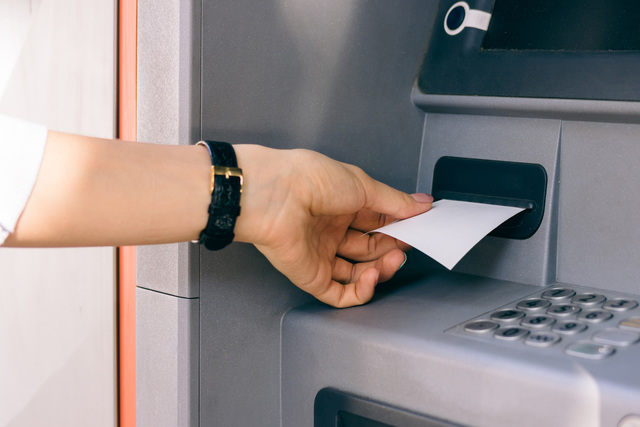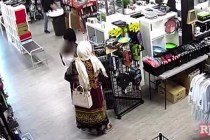First Tuesday attendees learn about perils of financial crimes

Cristina Muniz of the southwest valley was at her bank’s ATM when she noticed her account balance was lower than she’d expected.
“I thought it was a little weird, so I started asking questions,” said Muniz, who was living in California at the time. She found out that $1,000 had been taken out of the account within that hour.
Muniz filed a report with the bank and later learned she had been a victim of a gas pump scam.
“I had to go through a big, long process,” she said in an interview at a First Tuesday event Feb. 7 at Windmill Library. “I had to get a new card. It was horrible.”
Muniz is one of about 70 people who attended the Metropolitan Police Department’s First Tuesday event or tuned in via Facebook Live to hear Detective Michael Gomez discuss financial crimes.
Attendees learned that Nevada ranked 19th in the nation with 3,613 reported victims for identity theft in 2015, a 27 percent increase from 2014 when there were 2,846 victims, according to the Federal Trade Commission’s Consumer Sentinel Network report. This affects about 10 victims a day. The state ranked No. 5 for fraud and forgeries in 2015 with 24,194 complaints, a 10 percent increase from the previous year where there were 21,952 complaints, according to the FTC.
This affected about 66 victims a day with an average loss of $1,300.
Metro Enterprise Capt. Roxanne McDaris said she has personal experience with financial crimes.
“It was very easy for me to become a victim of that as well,” she said. “It was very quickly resolved and I was happy about that, but just a way to prevent that in the future is great for all of us.”
The department addressed scams involving mass mailings, people claiming to be with the IRS, lottery winnings and inheritance, warrant arrests, remote access to computers and work at home, in which scammers claim they are from another country and offer to hire someone for work if they can use their bank account.
Muniz expressed concern about a technology scheme in which scammers place a sticker over the edge of a card reader to collect debit or credit card information. Gomez showed samples of what the stickers looked like and warned people to tug on card-reading machines before swiping or inserting their cards.
Gomez warned attendees that “if something seems too good to be true, it is,” and said people who have doubts should contact the organization that a scammer is claiming to represent.
Falling for scams may also get someone into trouble, he said. For example, mass-mailing scams involve a criminal sending a letter to someone that includes multiple checks — usually for $800 to $1,000 each. The victim is asked to cash the checks and send 80 percent of the money back to the sender via wire transfer.
“You actually commit a crime (with) every check you cash,” Gomez said.
Criminals can access personal information via going through one’s trash, mail theft, burglary, larceny and electronic theft.
“One thing you have to remember about identity theft is that it is the gift that keeps on giving,” Gomez said. “As soon as you become a victim once, I can guarantee three to four more times in your life span — I don’t care what your age is — it happens that often.”
To reach View intern reporter Kailyn Brown, call 702-387-5233 or email kbrown@viewnews.com. Follow her on Twitter: @KailynHype.
HOW TO PROTECT YOURSELF
• Use a cross-cut shredder to discard personal information
• Do not give out personal information over the phone, through email or on the internet
• Periodically copy all of the information in your wallet so you have record on the contents
• Pay attention to your credit card bills for inaccurate charges
• Go to annualcreditreport.com. Under the Fair Credit Reporting Act, you are allowed one free credit report from each of the three major credit bureaus once per year.
• Cancel credit cards you do not use
• Don’t carry your Social Security or health insurance card unless you need it that day
• Guard your mail from theft and pick up your mail promptly
• Guard your personal identification number at all times
IF YOUR IDENTITY HAS BEEN STOLEN
• Place a fraud alert on your credit reports and review your reports (Equifax, Experian, etc.)
• Close any accounts that have been tampered with or opened fraudulently
• File a report with your police department
Enterprise Area Command Crime Prevention: 702-828-5804
Fraud phone: 702-828-3285
Fraud email: financialcrimes@lvmpd.com
File a complaint with the Federal Trade Commission: 877-438-4338


















